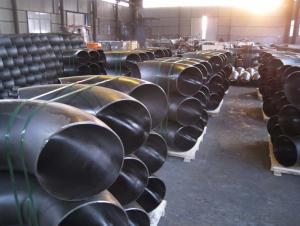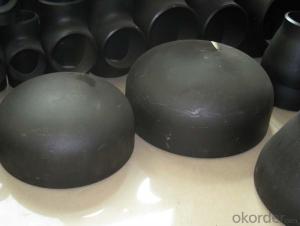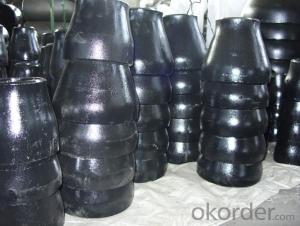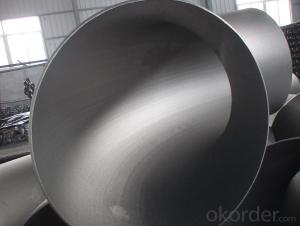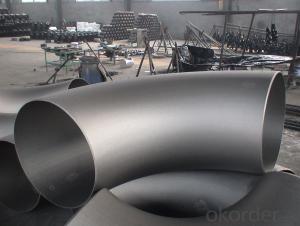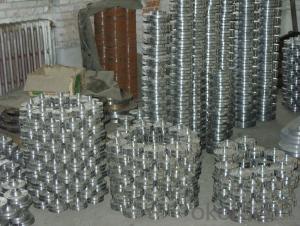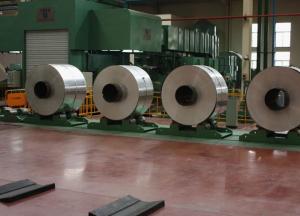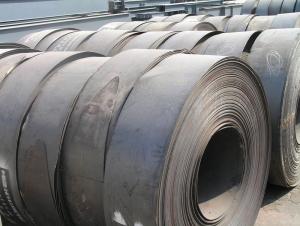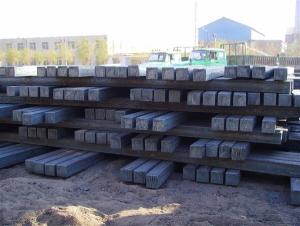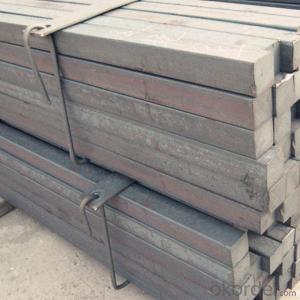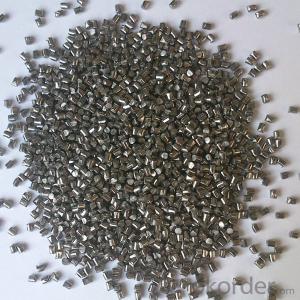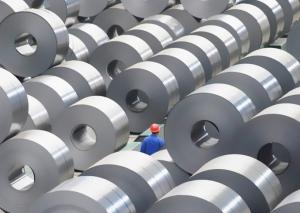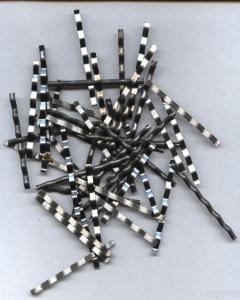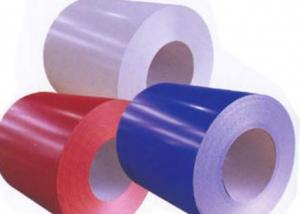Carbon Steel Pipe Fittings ELBOW 2''
- Loading Port:
- China Main Port
- Payment Terms:
- TT OR LC
- Min Order Qty:
- -
- Supply Capability:
- -
OKorder Service Pledge
OKorder Financial Service
You Might Also Like
Specifications
pipe fitting elbow
Certificate:ISO:9001-2000
New material,completely meet asme and din standard
Best price
1. type: AISI ASTM A234 WPB BW Con Elbow
2. Size: 1/2"-48"(1/2"-24"is seamless and 26"-48"is welded)
3. Wall thickness: sch10-160, STD, XS, XXS
4. Material: A234WPB, A420WPL6, A420WP5, WP11, WP12, WP22, etc
5. Welding line: seamless
6. Angle of bend: 30, 45, 90, 180degree
7. Bending radius: SR, LR
8. Standard: ANSI B16.9, JIS, SB, DIN, GB
9. Surface treatment: black paint, vanis paint, black rust-proof oil,
transparent oil, hot galvanizing
10. Application: petroleum, electricity, chemical, natural gas, metallurgy,construction,
shipbuilding and other fields because of its high pressure, high temperature, etc
11. connection: welding
12. technics:forged
13.Certificate:ISO9001 - 2000, CE, SGS, etc.
14. packaging: wooden case, pallet, container or in accordance with the
requirement of customers
15. Principle: quality fist, customer first, credit first
16. payment: L/C T/T
17. delivery time: 7-25 days after payments
18. Notes: the bevel can be made in accordance with the special requirements
of the customers
19. Others: we can also produce the products according to the requirements
of the customers
The main production:
1. PIPE FITTINGS: elbows, tees, bends, reducers, cap, flanges and sockets etc.
2. PIPE: bult welded pipes, seamless pipes, threaded pipes, etc.
We sincerely welcom customers at home and abroad to visit us and seek common development.
- Q:How is steel used in the production of mining equipment?
- Steel is commonly used in the production of mining equipment due to its strength, durability, and ability to withstand the harsh conditions of mining operations. It is used to manufacture various components such as drill bits, crushers, conveyors, and machinery frames, providing the necessary strength and reliability needed for efficient mining processes.
- Q:What are the different types of steel mesh and their applications?
- There are several different types of steel mesh, each with its own specific applications. Some common types include welded wire mesh, expanded metal mesh, and woven wire mesh. Welded wire mesh is commonly used in construction and industrial settings for reinforcement, fencing, and concrete reinforcement. Expanded metal mesh is often used for architectural and decorative purposes, as well as in filtration systems and security applications. Woven wire mesh is versatile and can be used in various industries, including agriculture, mining, and transportation, for purposes such as screening, separation, and containment.
- Q:How are steel tubes used in the fabrication of bicycle frames?
- Steel tubes are commonly used in the fabrication of bicycle frames as they provide strength, durability, and flexibility. These tubes are cut, shaped, and welded together to form the main structure of the frame, ensuring stability and support for the rider. Additionally, steel tubes allow for customization in terms of design and geometry, enabling manufacturers to create frames that cater to different riding styles and preferences.
- Q:What are the different types of steel cables and their uses?
- There are several types of steel cables, each designed for specific applications. Some common types include galvanized steel cables, stainless steel cables, and carbon steel cables. Galvanized steel cables are coated with a layer of zinc to prevent corrosion, making them suitable for outdoor and marine environments. Stainless steel cables are highly resistant to corrosion, heat, and chemicals, making them ideal for applications in harsh conditions such as in the aerospace or chemical industry. Carbon steel cables are strong and durable, commonly used in construction, automotive, and manufacturing industries. Overall, the choice of steel cable depends on the specific requirements of the application in terms of strength, corrosion resistance, and environmental conditions.
- Q:How is steel used in the production of playground equipment?
- Steel is commonly used in the production of playground equipment due to its strength, durability, and ability to withstand outdoor elements. It is used to construct the frames, supports, and chains of various play structures such as swings, slides, and climbing frames. Steel's robust nature ensures the equipment can safely support the weight of children and withstand frequent use and harsh weather conditions, making it an ideal material for playground equipment.
- Q:How is steel used in the manufacturing of oil and gas pipelines?
- Steel is commonly used in the manufacturing of oil and gas pipelines due to its strength, durability, and resistance to corrosion. It is used to construct the main body of the pipeline, providing a secure channel for the transportation of oil and gas over long distances. The steel pipes are welded together to form a continuous pipeline, ensuring the integrity and safety of the system. Additionally, steel is often coated with protective layers to further enhance its resistance to corrosion and external damage.
- Q:What are the common uses of steel pipes and tubes?
- Steel pipes and tubes have a wide range of common uses across various industries. They are frequently used for transporting fluids and gases in plumbing, heating, and cooling systems. Additionally, steel pipes and tubes are widely employed in the construction industry for structural purposes, such as supporting buildings, bridges, and infrastructure. Other common applications include oil and gas pipelines, automotive manufacturing, and the production of machinery and equipment.
- Q:How is steel used in the manufacturing of machinery and equipment?
- Steel is used in the manufacturing of machinery and equipment due to its exceptional strength, durability, and versatility. It is commonly used to create the structural frames, components, and parts of various machines and equipment. Additionally, steel can be easily shaped, welded, and machined, allowing for precise customization and assembly. Its resistance to wear, corrosion, and high temperatures makes it ideal for heavy-duty applications, ensuring the longevity and reliability of machinery and equipment in various industries.
- Q:How are steel products used in the construction of exhibition halls and convention centers?
- Steel products are extensively used in the construction of exhibition halls and convention centers due to their strength, durability, and versatility. Steel is commonly used for the structural framework, such as columns, beams, and trusses, providing stability and support to the large and complex structures. Additionally, steel is utilized in the construction of roofs, walls, and facades, allowing for expansive open spaces and flexible layouts. Its ability to withstand heavy loads and resist fire and seismic forces make it an ideal choice for constructing these large-scale venues.
- Q:What are the environmental impacts of producing steel products?
- The environmental impacts of producing steel products include emissions of greenhouse gases during the production process, such as carbon dioxide and methane. Steel production also contributes to air pollution through the release of particulate matter, sulfur dioxide, and nitrogen oxides. The extraction of raw materials for steel production, such as iron ore and coal, can result in habitat destruction and deforestation. Additionally, the energy-intensive nature of steel manufacturing leads to significant consumption of natural resources, including water and energy. Proper management and implementation of sustainable practices are crucial to minimize these environmental impacts.
1. Manufacturer Overview |
|
|---|---|
| Location | |
| Year Established | |
| Annual Output Value | |
| Main Markets | |
| Company Certifications | |
2. Manufacturer Certificates |
|
|---|---|
| a) Certification Name | |
| Range | |
| Reference | |
| Validity Period | |
3. Manufacturer Capability |
|
|---|---|
| a)Trade Capacity | |
| Nearest Port | |
| Export Percentage | |
| No.of Employees in Trade Department | |
| Language Spoken: | |
| b)Factory Information | |
| Factory Size: | |
| No. of Production Lines | |
| Contract Manufacturing | |
| Product Price Range | |
Send your message to us
Carbon Steel Pipe Fittings ELBOW 2''
- Loading Port:
- China Main Port
- Payment Terms:
- TT OR LC
- Min Order Qty:
- -
- Supply Capability:
- -
OKorder Service Pledge
OKorder Financial Service
Similar products
New products
Hot products
Related keywords
